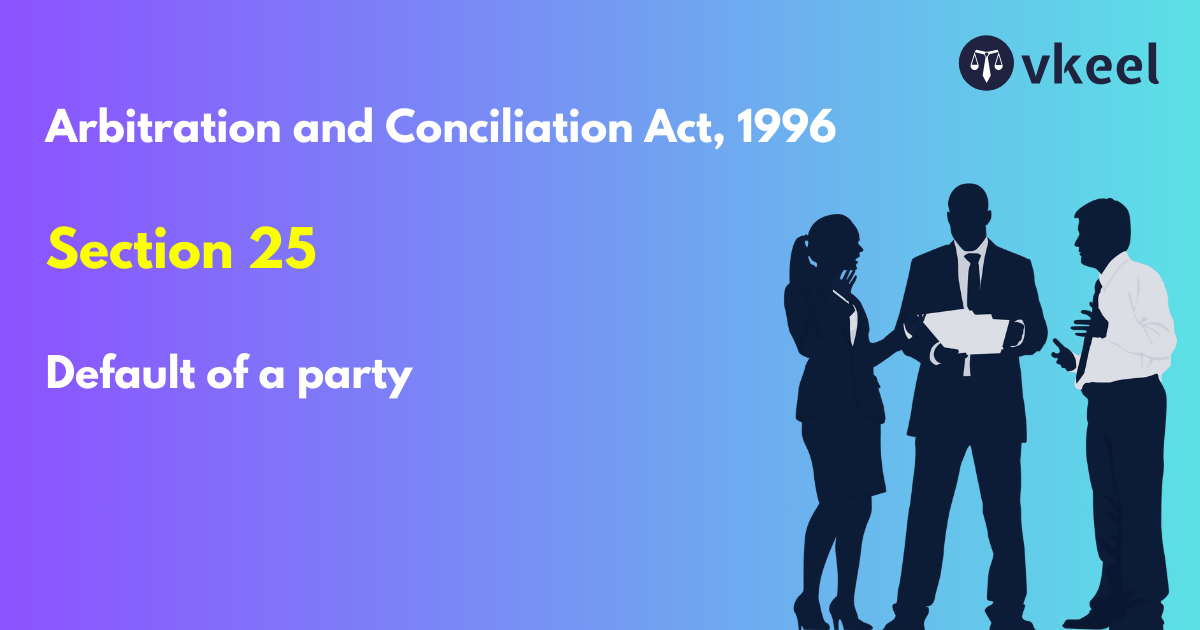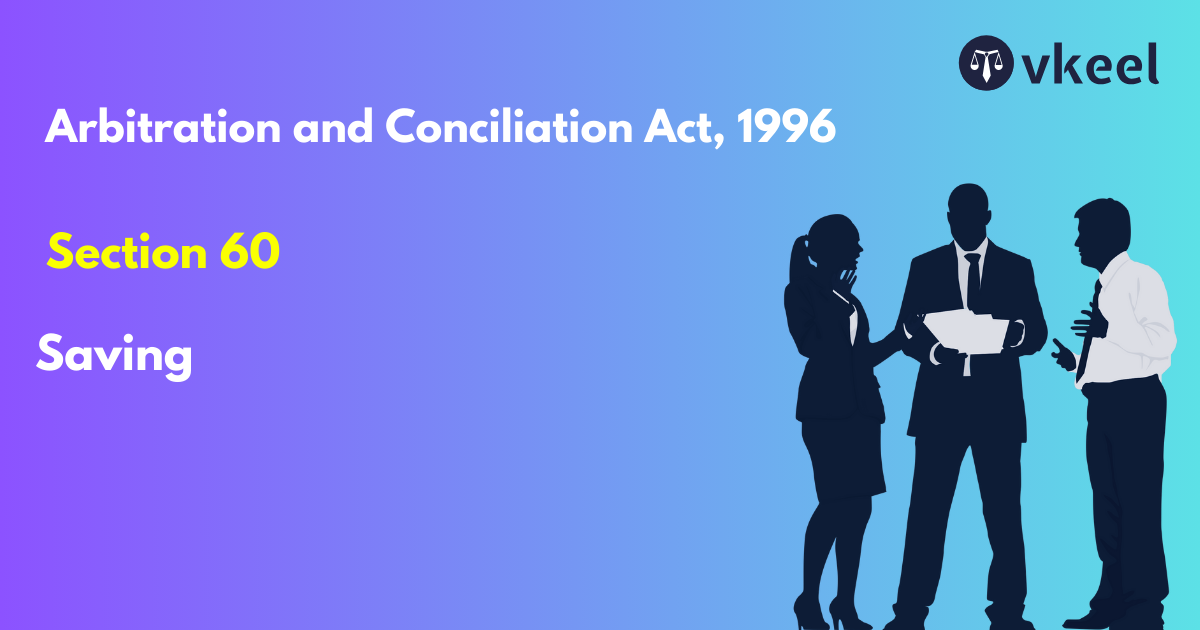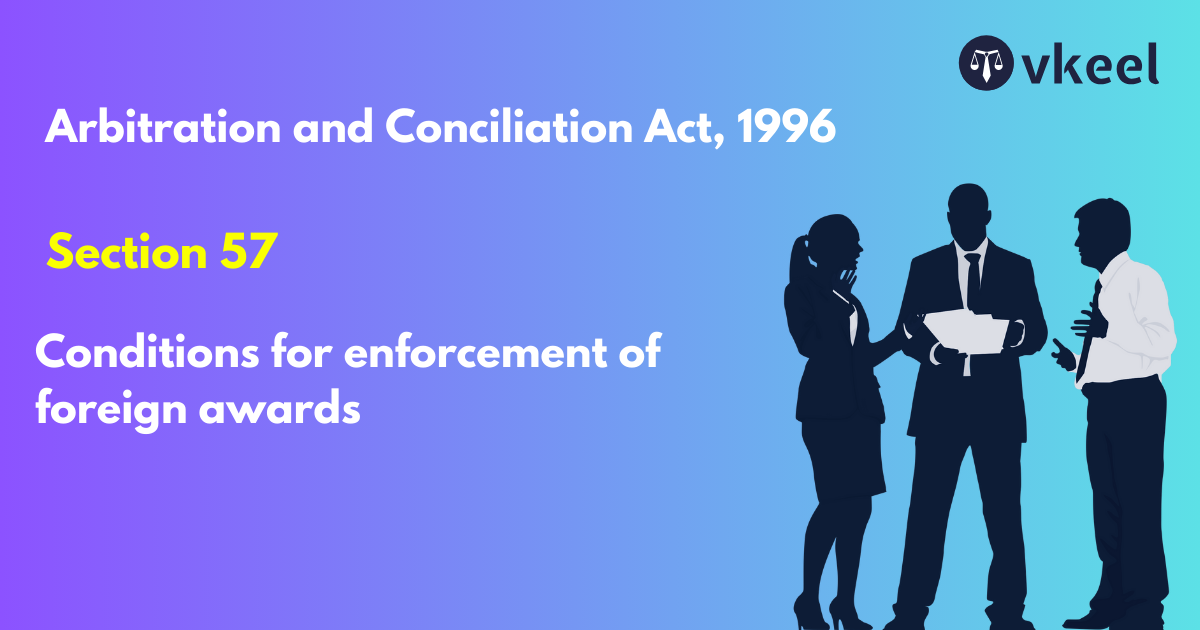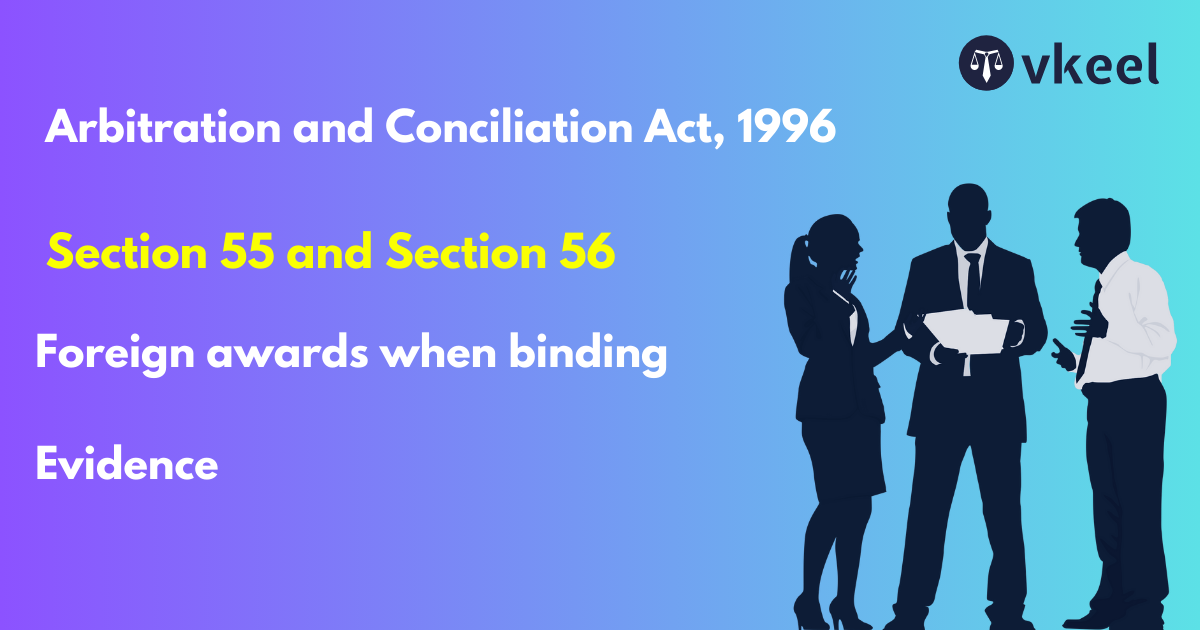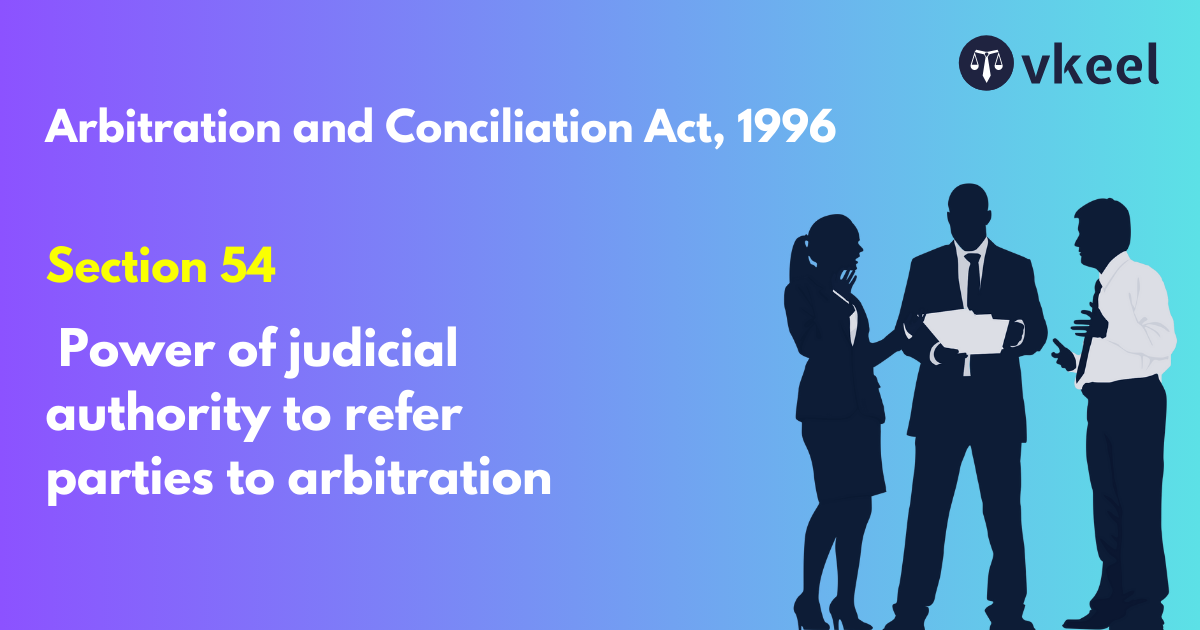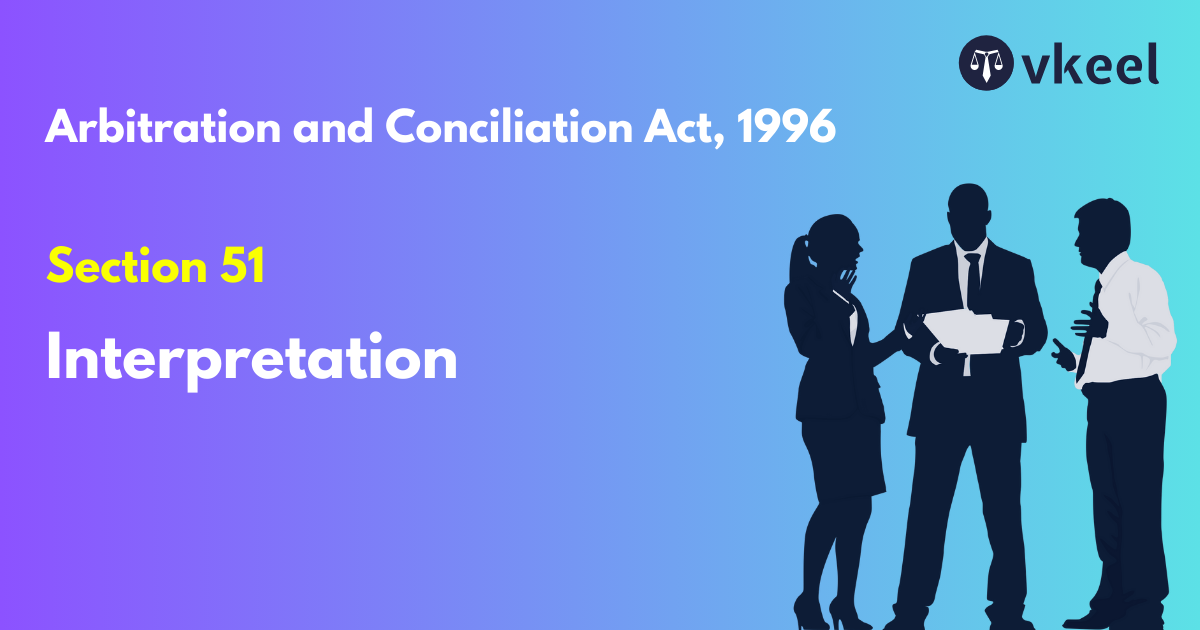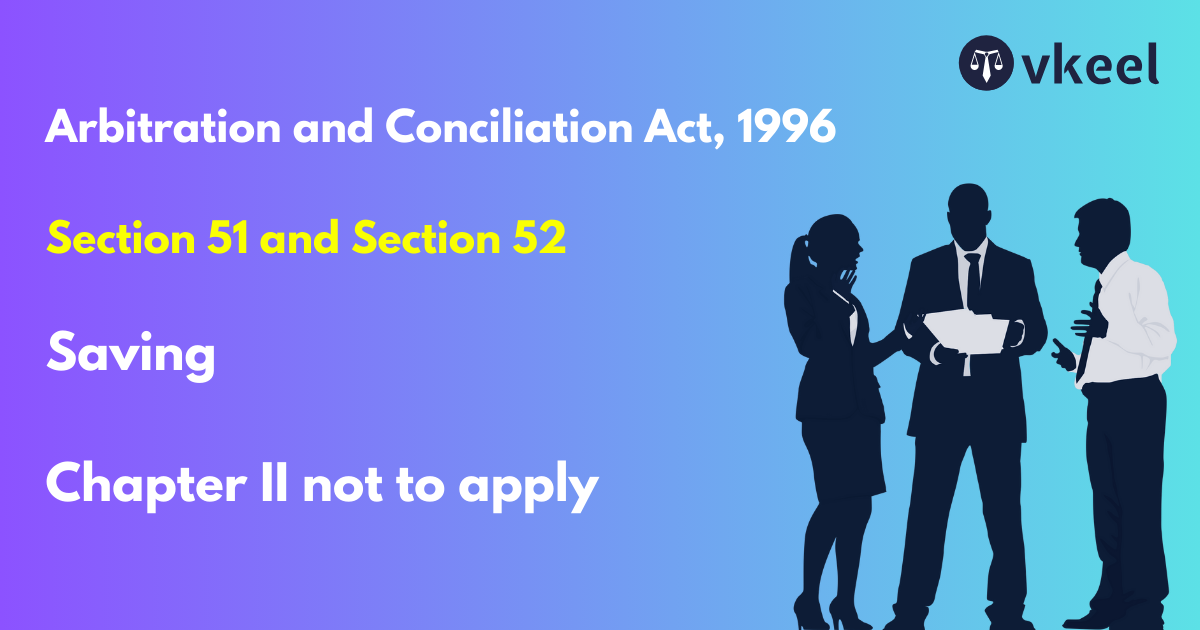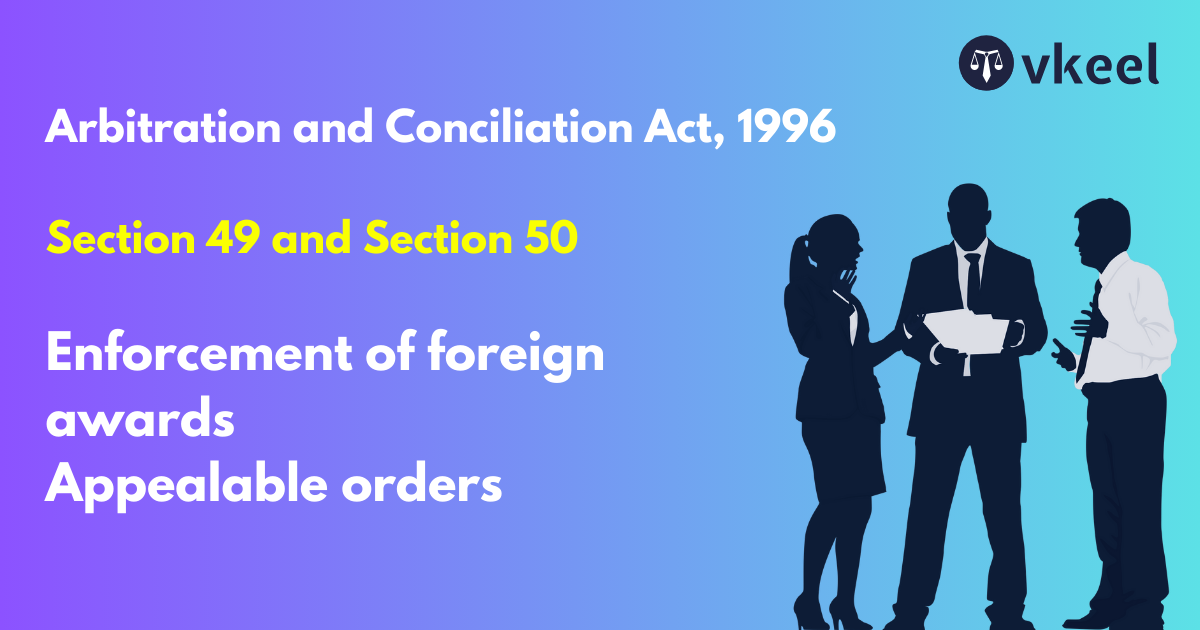Section 25: Arbitration and conciliation act, 1996
By Nivedita Dhiman
Table of Contents
Introduction of section 25
Section 25 of the arbitration and conciliation act, 1996 primarily tells us about the importance of cooperation and procedural compliance by both parties in arbitration. This section lays down that the arbitral tribunal shall have to terminate the proceedings if the claimant fails to communicate his statement of claims under the section 23 within the specified period of time unless he shows sufficient cause for not doing so.
The tribunal may continue the proceedings if the respondent fails to submit their statement of defense. The arbitral tribunal has the power to proceed in the absence of compliance thereby maintaining the whole framework and efficiency of the mechanism of arbitration.
Section 25 of arbitration and conciliation act
Default of a party
Unless otherwise agreed by the parties, where, without showing sufficient cause,—
(a) the claimant fails to communicate his statement of claim in accordance with sub-section (1) of section 23, the arbitral tribunal shall terminate the proceedings;
(b) the respondent fails to communicate his statement of defence in accordance with sub-section (1) of section 23, the arbitral tribunal shall continue the proceedings without treating that failure in itself as an admission of the allegations by the claimant 1[and shall have the discretion to treat the right of the respondent to file such statement of defence as having been forfeited].
(c) a party fails to appear at an oral hearing or to produce documentary evidence, the arbitral tribunal may continue the proceedings and make the arbitral award on the evidence before it.
Landmark Judgements of section 25
Unison Hotel Pvt Ltd vs Value Line Interiors Pvt Ltd, 2015
Where the petitioner had not placed his objection to the continuation of arbitration proceedings in the matter, on account of purported failure of the respondent to file statement of claim within a responsible time before the arbitrator, it was held that arbitrator was empowered to consider such an objection and if on facts and the circumstances of the case the arbitrator comes to the conclusion that the delay in filing the statement of claim is of such a nature that he ought to terminate the proceedings, he would proceed to pass such an order.
N Jayalaxmi vs R Veenaswamy, 2003
This section lays down that the arbitral tribunal shall have to terminate the proceedings if the claimant fails to communicate his statement of claims under section 23 within the stipulated period unless he shows sufficient cause for not ding so. When the claimant advances grounds which are sufficient to condone delay, the arbitral tribunal will have power to condone delay and entertain the claim statement within such further time as the arbitral tribunal may allow.
Wharf Properties Ltd vs Eric Cumine Associates, 1991
The arbitrators should insist upon full particularization of the claims. If this is not done, it helps to conceal claims lacking in any real substance or degree of preparation and can place the defendants in great difficulties both in knowing with sufficient precision the case they have to meet and so in the preparation of their own case.
Ram Bali vs Tulsi, 1964
Where the objection that notice the date of the hearing was not given by the arbitrator was raised for the first time in revision before the high court, it was held that such a plea was not maintainable.
Ministry of defence, government of India vs Cenrex, 2015
Merely because a clause on the basis of which relief is claimed is not specifically mentioned in the pleadings, it is legally permissible for the petitioner to urge a case based on the said clause. The substance of the pleadings have to be seen and not the form.
Conclusion of section 25
The above-mentioned section makes it sure that disputes get resolved on time. This section deals with the default of a party during the proceedings of arbitration. The arbitration continues to function even if somebody is not participating fully in the process. This section also highlights the importance of both the parties who are actively participating and complying with the set timelines.
Disclaimer:
The information provided in the article is for general informational purposes only, and is not intended to constitute legal advice or to be relied upon as a substitute for legal advice. Furthermore, any information contained in the article is not guaranteed to be current, complete or accurate. If you require legal advice or representation, you should contact an attorney or law firm directly. We are not responsible for any damages resulting from any reliance on the content of this website.

